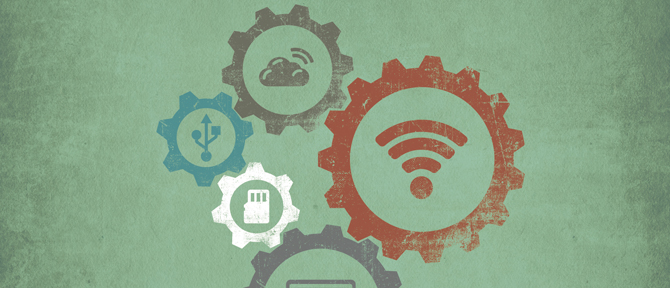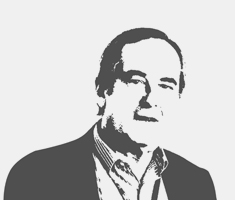Toward a new transformed reality
Today the label “digital transformation” is something that permeates all areas of our daily life. From the moment we get up until we go to bed. Nothing is alien to this transformation, including our professional, leisure, family or social activities. We are spectators and protagonists of one of the most interesting and dizzying phenomena man has ever created. Because everything that happens today is hyper-connected, our society has never been more informed or, at the same time, more high-tech in all its processes.
In today’s world there are already more mobile terminals than people, and a third of the world’s population is already connected to the Internet. These are just two clear signs, although superficial, that indicate we are immersed in a real digital revolution; superficial, because they are only the tip of the iceberg. This new hyper-connected digital society of knowledge is as or more important than the revolutions our ancestors led, such as the printing, agricultural or industrial revolution.
We are part of a digital revolution that demands immediacy of us while at the same time quickly transforms our processes and behaviors in order to develop a new hyper-connected, knowledge-based society
But unlike other major steps man has made, this new digital revolution demands immediacy. It is a quick and quiet revolution that has come into our lives without us noticing, and there is no turning back. The situation calls us to act quickly and asks us to transform ourselves. This transformation means adapting our processes and behaviors to the new reality.
And it cannot take us by surprise. However, it leads us to consider another way of doing things. A way that is more crosscutting and collaborative, more intuitive and democratic. In this new era, we all have superpowers. Citizens have discovered there are mechanisms and tools to overthrow governments, that the democratization of their societies is just one click or post away, that education can and should be a right for everyone and that transparency is now the key to survival. Businesses should and must change their methods of producing goods but also of interacting with their employees and  customers, who know that they have superpowers and are capable of leading a revolution inside the business and forcing it change its plans. Professional profiles are also transforming in light of the new needs. Today the talent and skills needed to develop new products or services are also being transformed.
customers, who know that they have superpowers and are capable of leading a revolution inside the business and forcing it change its plans. Professional profiles are also transforming in light of the new needs. Today the talent and skills needed to develop new products or services are also being transformed.
Within this new landscape, we are currently at an economic and social crossroads where there are some new, fully-digital players, others who are in the process of transformation (we might say they are digitally emerging) and those who actually still have yet to realize what they are up against. This includes governments, corporations, companies, citizens and customers. EVERYBODY. It is precisely this new, emerging ecosystem that we must all strive to understand. Now our challenge is spreading and sharing knowledge for a new hyper-connected society based on sustainability, which is still fully developing itself.
But before this revolution goes further, we must seek convergence between all these players at the points that unite us in order to identify issues that must be resolved so our processes are guided not only by competitiveness but also people’s quality of life. Because, interestingly, we are equally between the possibility of achieving more equal societies and the possibility of the divide becoming even greater and more unequal.
All countries, companies and firms must become aware of this need for transformation. Not only from the “digital” and technological point of view but also from the point of view of knowledge management and how to manage our daily processes.
Digital transformation must be a priority in our agenda and in the agenda of any country. At the same time, we are preoccupied by the competitiveness that today’s world naturally requires of us.
The digital era leads us to consider another way of doing things. A way that is more crosscutting and collaborative, more intuitive and democratic, where all players have superpowers
From this privileged platform, we want to emphasize the urgency of SENSITIZING companies and institutions to the need to adapt management models to today’s tech culture. And we also want to emphasize the need to CATALYZE knowledge, experiences and difficulties in order to convey the benefits technology can offer us in all areas of life without forgetting the consequences misusing of them could have. There are more benefits than secondary effects. We favor an organized digital revolution, one in which everyone is aware of the consequences and that enables us to develop fully and sustainably.


